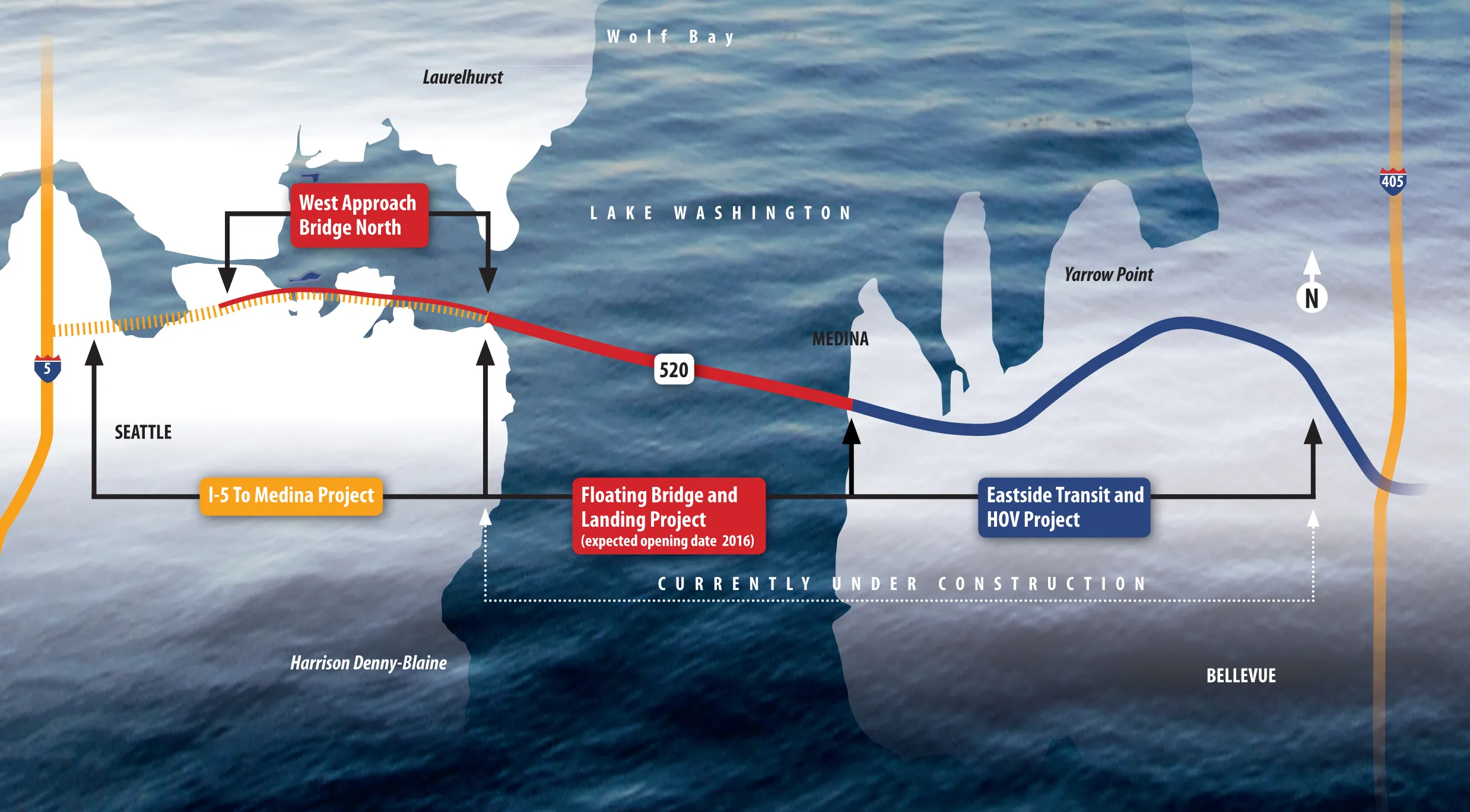Canada’s provincial British Columbia government has issued a request for qualification for construction of a US$2.7 billion bridge over the Fraser River around the city of Vancouver.
The 10-lane bridge will be built under a 30-year public-private partnership agreement and will include tolled transit lanes and related Highway 99 improvements between Bridgeport Road in the adjacent city of Richmond and Highway 91 in the city of Delta. The 60-year-old tunnel now carries its limit of 80,000 vehicles a day an
June 30, 2016
Read time: 2 mins
Canada’s provincial British Columbia government has issued a request for qualification for construction of a US$2.7 billion bridge over the Fraser River around the city of Vancouver.
The 10-lane bridge will be built under a 30-year public-private partnership agreement and will include tolled transit lanes and related Highway 99 improvements between Bridgeport Road in the adjacent city of Richmond and Highway 91 in the city of Delta. The 60-year-old tunnel now carries its limit of 80,000 vehicles a day and is often congested during rush hours.
The bridge will be the province's longest and feature a high-occupancy vehicle as well as cycle and pedestrian paths. Upgrades to the highway will include new interchanges on Westminster Highway, Highway 17A and Steveston Road.
Around 24 km of Highway 99 for transit/HOV lanes, and building pathways for cyclists and pedestrians on the bridge.
However, the provincial BC government said that a new bridge on the existing Highway 99 corridor minimizes the impact to agricultural lands, as most of the project will be carried out within the existing Highway 99 right-of-way. The province will need only small portions of land along sections of the highway in Richmond and Delta.
Extensive renovations to the old tunnel and attempts to improve access roads have been done over the years, but only about 10 years of life is left in the crossing. It will be closed due to the increasingly high cost of maintaining the structure that was opened in 1959 and also because it fails to meet the latest seismic requirements. Canada’s west coast is along the 1,000km Cascadia fault that stretches from Northern Vancouver Island to Cape Mendocino in northern California.
The 10-lane bridge will be built under a 30-year public-private partnership agreement and will include tolled transit lanes and related Highway 99 improvements between Bridgeport Road in the adjacent city of Richmond and Highway 91 in the city of Delta. The 60-year-old tunnel now carries its limit of 80,000 vehicles a day and is often congested during rush hours.
The bridge will be the province's longest and feature a high-occupancy vehicle as well as cycle and pedestrian paths. Upgrades to the highway will include new interchanges on Westminster Highway, Highway 17A and Steveston Road.
Around 24 km of Highway 99 for transit/HOV lanes, and building pathways for cyclists and pedestrians on the bridge.
However, the provincial BC government said that a new bridge on the existing Highway 99 corridor minimizes the impact to agricultural lands, as most of the project will be carried out within the existing Highway 99 right-of-way. The province will need only small portions of land along sections of the highway in Richmond and Delta.
Extensive renovations to the old tunnel and attempts to improve access roads have been done over the years, but only about 10 years of life is left in the crossing. It will be closed due to the increasingly high cost of maintaining the structure that was opened in 1959 and also because it fails to meet the latest seismic requirements. Canada’s west coast is along the 1,000km Cascadia fault that stretches from Northern Vancouver Island to Cape Mendocino in northern California.







